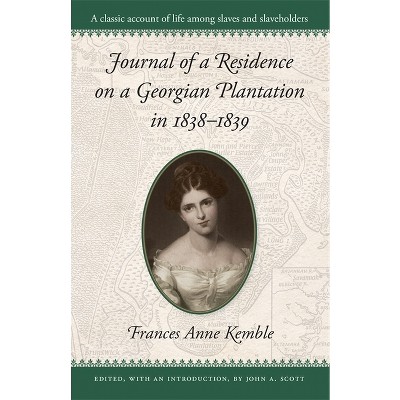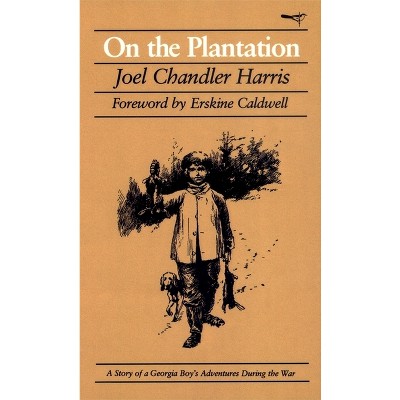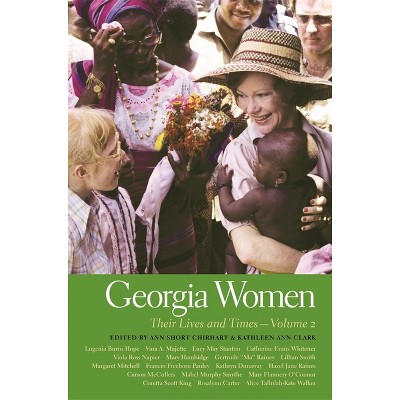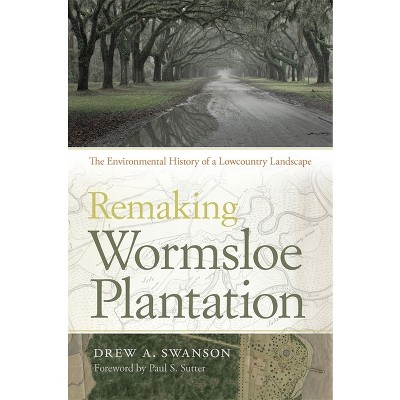The Croom Family and Goodwood Plantation - by William Warren Rogers & Erica R Clark (Paperback)

About this item
Highlights
- One of the most elegant mansions in Florida, Goodwood was built over a century ago and stands today as one of Tallahassee's grandest historical monuments.
- About the Author: William Warren Rogers (Author) WILLIAM WARREN ROGERS is professor emeritus of history at Florida State University.
- 320 Pages
- History, United States
Description
About the Book
One of the most elegant mansions in Florida, Goodwood was built over a century ago by the Croom family and stands today as one of Tallahassee's grandest historical monuments. Rogers and Clark tell the story of this family and their legacy, shedding new light on many aspects of antebellum family life, plantation management, and race relations.Book Synopsis
One of the most elegant mansions in Florida, Goodwood was built over a century ago and stands today as one of Tallahassee's grandest historical monuments. It was once the center of a thriving plantation founded by the Croom family of North Carolina, who in the 1820s sought to revive their fortunes in the newly opened Florida territory. William Warren Rogers and Erica R. Clark tell the story of this family and their legacy, shedding new light on many aspects of antebellum family life, plantation management, and race relations. They describe how brothers Hardy and Bryan Croom developed Goodwood Plantation to over four thousand acres with nearly two hundred slaves before Hardy and his family were killed in a shipwreck, and how a twenty-year lawsuit, complicated by questions of survivorship and residency, denied Bryan control of the estate. This meticulously detailed account, drawing extensively on family correspondence and court records, is a story of humaneness, hard work, and family values--but also of selfishness and greed--that reveals an intriguing chapter of southern history.Review Quotes
Rogers and Clark give us an excellent treatment of the Croom family in southern history and of one of Florida's most interesting plantations. But they have done much more than that. They have also portrayed the larger story of the development of what became the cotton kingdom of the South. They have made a valuable contribution to the literature of antebellum southern history which will stand the test of time.
--Jerrell H. Shofner "author of Florida Portrait: A Pictorial History of Florida"[A]n excellent work to our too-short shelf of studies on migration and settlement in the antebellum South.
--Georgia Historical QuarterlyA major theme of the book is based on the description of this extended litigation, which offers some interesting insights into the legal procedures of that era in the South.
--North Carolina Historical ReviewDetailed and well-written . . . An important contribution to family, legal, agricultural, religious, and cultural history.
--Journal of Southern HistoryThe authors clearly show the importance and role of extended family in helping to shape the saga of the Crooms, as well as the story of Florida's early development, growth, and history. . . . This book is well documented by use of census records, manuscript collections, newspapers, and tax rolls. It succeeds at placing this particular planter-class family and its twisted web of kinfolk within the overall context of southern society from the 1800s to the Civil War. Students of Southern, Florida, and American history, and those interested in slavery will find this study of the life and times of Hardy and Bryan Croom to be of significant interest.
--Florida Historical QuarterlyThe authors have provided an exhaustive narrative of an important legal case.
--Journal of the Early RepublicThere is a vast literature--family records, correspondence, newspaper accounts, depositions and lawsuits--but the authors have mastered it all, and, for the first time, given us the complete picture.
--Tallahassee DemocratAbout the Author
William Warren Rogers (Author)WILLIAM WARREN ROGERS is professor emeritus of history at Florida State University. Erica R. Clark (Author)
ERICA R. CLARK is a volunteer researcher at Goodwood Museum and Gardens, Inc.











